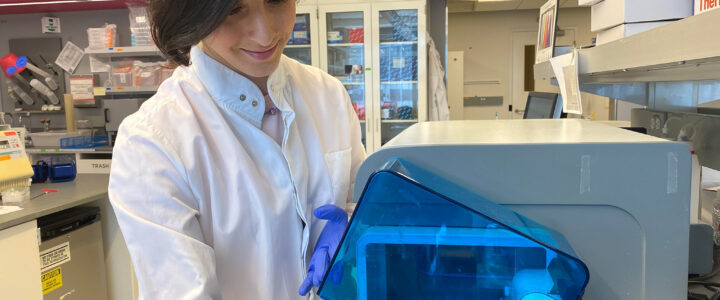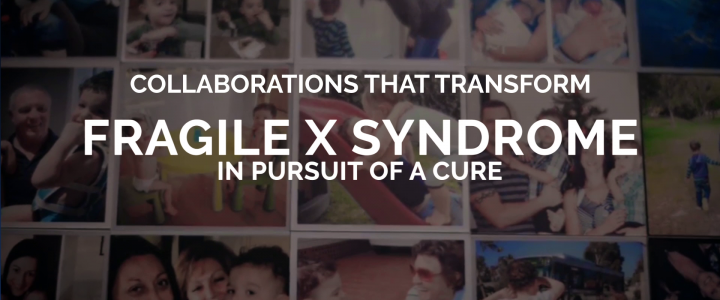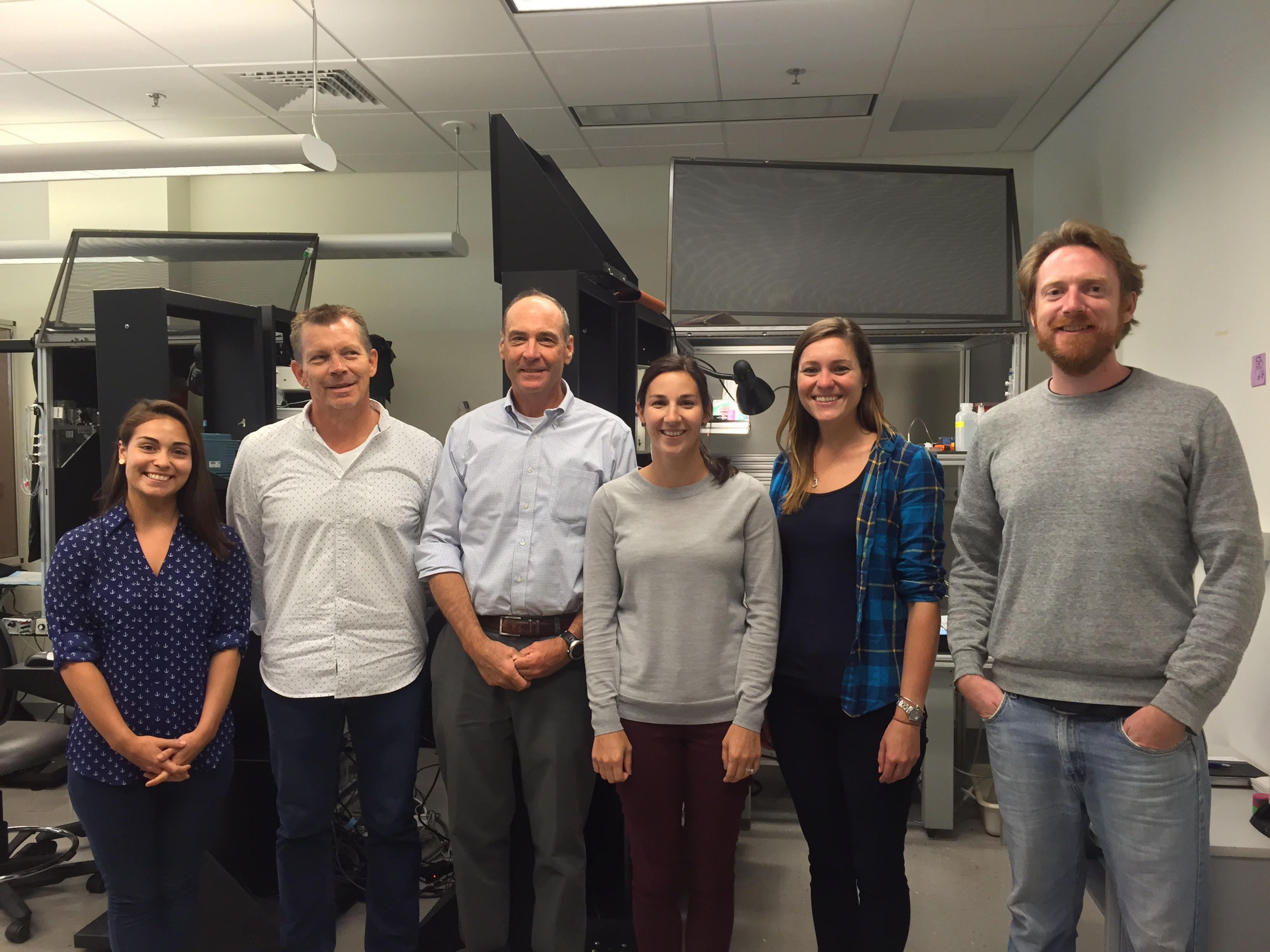Recap of Patrick’s PALS 28: a successful 3-on-3 basketball fundraiser in Boston, raising $170,000+ for FRAXA Research Foundation.
Read morecancer
Two-Med Combo Normalized Behavior, Improved Memory in Fragile X Mice

Treating Fragile X syndrome will likely require a combination of drugs, as a single medication may not address all symptoms. At FRAXA-DVI, Dr. Patricia Cogram and her team recently tested a combination of two investigational new drugs in Fragile X mice, with support from Healx. Together ibudilast and gaboxadol rescued a wide array of symptoms in the mice.
Read moreCelebrating Success at Patrick’s PALS 27th Annual 3-on-3 Basketball Tournament for FRAXA

Recap of Patrick’s PALS 27: a successful 3-on-3 basketball fundraiser at Bentley University, raising $150,000+ for FRAXA Research Foundation.
Read moreASOs and Fragile X: Addressing the Most Asked Questions

Explore the potential of ASOs in treating Fragile X syndrome & FXTAS. Dive into a comprehensive Q&A addressing key questions and breakthrough findings.
Read moreSRC Family Kinase Inhibitor as a Potential Treatment for Fragile X Syndrome

Discover the Smith lab’s new approach to treating Fragile X syndrome using Saracatinib, originally a cancer drug. Learn how this $100,000 FRAXA research grant-funded study opens up hopeful avenues.
Read moreFragile X Syndrome and Cancer Research: Unexpected Links and Opportunities for Collaboration

Discover unexpected links between Fragile X Syndrome and cancer. Studies show people with Fragile X have much lower cancer rates. Explore new opportunities for collaboration in this promising research.
Read moreFRAXA Investigator Lynne Maquat Awarded 2023 Gruber Genetics Prize

Dr. Maquat, 2023 Gruber Genetics Prize winner, discovered NMD, a key surveillance system in the body that protects against mistakes in gene expression. Her groundbreaking research has led to new therapies for Fragile X syndrome.
Read moreMeet Archie!

Meet #FriendofFRAXA Archie! If you would like to nominate someone as a #FriendofFRAXA, we welcome all who have been touched by Fragile X, including friends, grandparents, siblings, professionals and companions alike to become a #FriendofFRAXA with the goal of putting a face to Fragile X for those who may not know someone directly.
Read morePromising Results of Preclinical Study of ANAVEX®2-73

We are excited to share that Anavex Life Sciences announced today that preclinical data of the ANAVEX®2-73 (blarcamesine) study in Fragile X syndrome were published in the peer-reviewed journal, Scientific Reports.
Read moreFragile X Syndrome: In Pursuit of a Cure Webinar

A global webinar titled “Fragile X Syndrome: In Pursuit of a Cure,” took place on July 22, 2021 to commemorate World Fragile X Day. This complimentary event is co-organized with WuXi AppTec. We are delighted that more than 5,000 registered from more than 50 countries worldwide, coming together to raise awareness of Fragile X, and to foster collaborations towards effective treatments and ultimately a cure.
Read moreBeneath the Surface of Fragile X Syndrome: Study Sheds Light on What’s Happening in Nerve Cells

This FRAXA-funded project has turned up some surprising results. At first, it might seem Kurosaki and Maquat have found yet another cellular process which is malfunctioning in Fragile X. But this finding is intimately related to previous findings of abnormal protein synthesis and misregulated transcription in Fragile X. FMRP (the protein lacking in Fragile X syndrome) is involved in chaperoning messenger RNAs within cells to active sites, and in controlling their translation into many different proteins. Some of these proteins are transcription factors, which feed back to the nucleus to control gene expression.
Read moreTowards Understanding the Role of FMRP in Human Brain Development Using Brain Organoids

Dr. Zhexing Wen and Dr. Peng Jin of the newly funded Fragile X Center of Excellence at Emory University School of Medicine join us in this seminar to present about Understanding the Role of FMRP in Human Brain Development Using Brain Organoids.
Read moreScientists Find a New Way to Reverse Symptoms of Fragile X

FRAXA Investigator and MIT Professor Mark Bear and his colleagues have identified a valuable new target for Fragile X therapeutics: GSK3 alpha. Several FRAXA research teams previously identified GSK3 beta as a treatment target for Fragile X. The catch is that, so far, GSK3 beta inhibitors have proven too toxic for regular use. Dr. Bear’s new discovery opens up the possibility of developing more selective compounds with less toxicity and fewer side effects. Interestingly, lithium inhibits both GSK3 versions – alpha and beta.
Read morePatrick’s PALS 23rd Annual Basketball Tournament Raises $140,000 for Fragile X Research

Patrick’s PALS has grown from a twelve-team tournament to a 36-team extravaganza! On four half-courts, 18 first-round games set teams on a path to the winners or losers bracket. After that, it was all about staying alive and avoiding elimination by not losing two games. In the end, two veteran teams faced off for the rights to ensure their names would be engraved on the PALS Trophy: the multiple-past-champion Kline Team and the always-in-the-mix Gray Team (pictured above). Gray entered the finals with one loss, so they needed to beat Kline twice. That they did to become the Champions of Patrick’s PALS XXIII!
Read moreMetformin and Aberrant Insulin Signaling in a Fragile X Mouse Model

This 2017-2018 grant of $90,000 is funded jointly by FRAXA and the Fragile X Research Foundation of Canada for the first year. A previous FRAXA grant to the Sonenberg lab has led to great interest in the available drug, metformin, as a potential treatment for Fragile X syndrome. FRAXA is currently organizing clinical trials of metformin.
Read moreTakeaways from Fragile X Advocacy Day

In the first week of March I attended my first Fragile X Advocacy Day to meet with many of the Massachusetts delegation to Congress. While this was my first time advocating for Fragile X research, I’ve been a longtime lung cancer research advocate and have met with many of the same representatives in the past. It was a pleasure to meet with many of the families as my participation in Advocacy Day was in the spirit of “we are all in this together”.
Read moreImpact of the Fragile X Community

At FRAXA Research Foundation, we are truly grateful for our Fragile X community and thousands of donors. We couldn’t keep moving the ball forward in research without your support. Each year FRAXA invests over $1 million in Fragile X research thanks to your support. Because we supported these three researchers, we were able to secure another $35 million in research aimed at identifying clinical trial outcome measures that will lead to human trials of promising treatments for those affected by Fragile X.
Read moreMetformin, Diabetes Drug, Potential Fragile X Treatment

“We treated mice with metformin and corrected all the core Fragile X deficits. We are optimistic about using metformin in human clinical trials. This is a generic drug with few side effects” says Nahum Sonenberg, PhD, James McGill Professor, Department of Biochemistry, McGill Cancer Center, McGill University.
Read moreBryostatin Restores Learning and Memory in Adult Fragile X Mice

A bizarre marine critter found off the California coast — Bugula neritina— is the only known source of a potential new Fragile X treatment, Bryostatin. Last month, FRAXA sat down with scientists from Neurotrope BioScience, a specialty biopharmaceutical company developing medicines for rare diseases and Alzheimer’s based on Bryostatin. Their Fragile X program is based on research by a West Virginia team led by Daniel Alkon, MD, which showed that Bryostatin-1 restores hippocampal synapses and spatial learning and memory in adult Fragile X mice.
Read moreFragile X Syndrome Protein Linked to Breast Cancer Progression
Claudia Bagni (VIB/KU Leuven, Belgium, and the University of Rome, Italy) and colleagues have identified the way Fragile X Mental Retardation Protein or FMRP contributes to the progression of breast cancer. The researchers demonstrated that FMRP acts as a master switch controlling the levels of several proteins involved in different stages of aggressive breast cancer, including the invasion of cancer cells into blood vessels and the spread of these cancer cells to other tissues forming metastasis.
Read moreWhat Works, and What Doesn’t
At the start, it’s always hard to know what methods will work best for something as complex as the development of disease-modifying treatments for Fragile X. But, we’ve always tried to let the science lead us down the right path. At this point, the results are unequivocal, and they have shaped how we are looking for the Next Great Thing in Fragile X treatments.
Read moreGenetic and Pharmacologic Manipulation of PI3K Activity in FXS: Assessing Potential Therapeutic Value

With a $90,000 grant from the FRAXA Research Foundation, Dr. Gary Bassell and his team at Emory University explored the PI3K/mTOR signaling complex in FXS via genetic and pharmacologic rescue approaches, to reduce the enzymatic function of specific components of this complex pathway in an FXS mouse model.
Read moreFMR1 Repression and the Signals to Chromatin

With a $70,000 grant from FRAXA Research Foundation from 2001-2003, Dr. Assam El-Osta and his team at the Peter MacCallum Cancer Institute studied mechanisms of methylation dependent silencing of FMR1, as well as regulation by histone acetylation/deacetylation.
Read moreProspects For Gene Therapy in the Fragile X
With a $90,000 grant from FRAXA Research Foundation from 2000-2002, Dr. Mario Rattazzi at the New York State Institute for Basic Research explored gene therapy: ways to transfer the FMR1 gene across the blood-brain-barrier in normal rats and mice, and then in FMR1 knockout mice. Results published.
Read more
